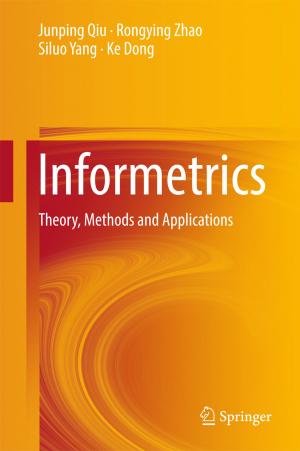Overcoming Students' Misconceptions in Science
Strategies and Perspectives from Malaysia
Nonfiction, Science & Nature, Science, Other Sciences, Study & Teaching, Reference & Language, Education & Teaching, Teaching, Teaching Methods| Author: | ISBN: | 9789811034374 | |
| Publisher: | Springer Singapore | Publication: | February 28, 2017 |
| Imprint: | Springer | Language: | English |
| Author: | |
| ISBN: | 9789811034374 |
| Publisher: | Springer Singapore |
| Publication: | February 28, 2017 |
| Imprint: | Springer |
| Language: | English |
This book discusses the importance of identifying and addressing misconceptions for the successful teaching and learning of science across all levels of science education from elementary school to high school. It suggests teaching approaches based on research data to address students’ common misconceptions. Detailed descriptions of how these instructional approaches can be incorporated into teaching and learning science are also included.
The science education literature extensively documents the findings of studies about students’ misconceptions or alternative conceptions about various science concepts. Furthermore, some of the studies involve systematic approaches to not only creating but also implementing instructional programs to reduce the incidence of these misconceptions among high school science students. These studies, however, are largely unavailable to classroom practitioners, partly because they are usually found in various science education journals that teachers have no time to refer to or are not readily available to them. In response, this book offers an essential and easily accessible guide.
This book discusses the importance of identifying and addressing misconceptions for the successful teaching and learning of science across all levels of science education from elementary school to high school. It suggests teaching approaches based on research data to address students’ common misconceptions. Detailed descriptions of how these instructional approaches can be incorporated into teaching and learning science are also included.
The science education literature extensively documents the findings of studies about students’ misconceptions or alternative conceptions about various science concepts. Furthermore, some of the studies involve systematic approaches to not only creating but also implementing instructional programs to reduce the incidence of these misconceptions among high school science students. These studies, however, are largely unavailable to classroom practitioners, partly because they are usually found in various science education journals that teachers have no time to refer to or are not readily available to them. In response, this book offers an essential and easily accessible guide.















